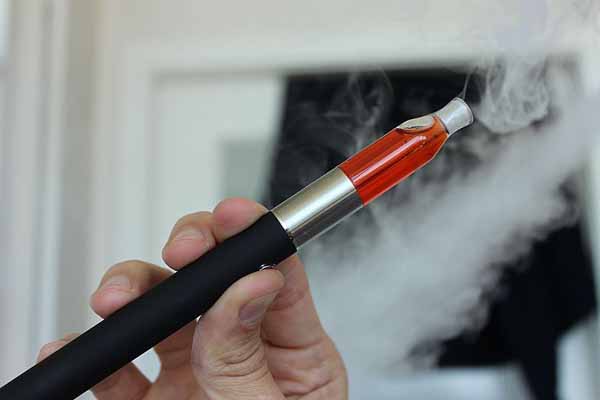
The number of people with severe pulmonary illness linked to vaping continues to rise both in Texas and nationwide.
As of Monday, 263 confirmed and possible cases of EVALI, or e-cigarette or vaping product use-associated lung injury, have been reported in Texas, the Department of State Health Services (DSHS) said.
Of those cases:
- 105 are confirmed;
- 98 are probable; and
- 1 death has been reported.
That's up from 222 cases, including 91 confirmed cases, reported Nov. 4.
Nationwide, 2,290 EVALI cases have been reported from 49 states (except Alaska), the District of Columbia, and one U.S. territory, the Centers for Disease Control and Prevention (CDC) said, as of Nov. 20. Forty-seven deaths have been confirmed in 24 states.
Vitamin E acetate, a sticky substance used in skin lotions and vitamin supplements, could be to blame for EVALI, health officials said earlier this month.
If you're interested in learning more about how the CDC is responding to the outbreak, tune into the CDC’s Emergency Partners Information Connection webinar scheduled for noon (CT) Dec. 4. Topics will include the current status of the emergency, recommendations, and resources for the public, healthcare providers, health departments, and other groups.
Texas health officials have rolled out a new form for physicians to use to report cases of lung injury or illness in patients who have used e-cigarette or vaping products within 90 days of symptom onset.
The form should be completed and returned, along with relevant medical records, to your local health department or the DSHS Environmental Surveillance and Toxicology Branch via fax (512-776-7249 or 512-776-7222), or encrypted email.
More information on e-cigarettes and the vaping epidemic, including the new form, can be found on the DSHS website.
The CDC has several recommendations for physicians who suspect severe lung disease caused caused by e-cigarettes, including:
- Report cases of severe pulmonary disease of unclear etiology and a history of e-cigarette product use within the past 90 days to your state or local health department. Reporting of cases may help CDC and state health departments determine the cause or causes of these pulmonary illnesses.
- Ask all patients who report e-cigarette product use within the last 90 days about signs and symptoms of pulmonary illness.
- If e-cigarette product use is suspected as a possible etiology of a patient’s severe pulmonary disease, obtain detailed history regarding:
- Substance(s) used: nicotine, cannabinoids (e.g., marijuana, THC, THC concentrates, CBD, CBD oil, synthetic cannabinoids [e.g., K2 or spice], hash oil, Dank vapes), flavors, or other substances
- Substance source(s): commercially available liquids (i.e., bottles, cartridges, or pods), homemade liquids, and re-use of old cartridges or pods with homemade or commercially bought liquids
- Device(s) used: manufacturer; brand name; product name; model; serial number of the product, device, or e-liquid; if the device can be customized by the user; and any product modifications by the user (e.g., exposure of the atomizer or heating coil)
- Where the product(s) were purchased
- Method of substance use: aerosolization, dabbing, or dripping
- Other potential cases: sharing e-cigarette products (devices, liquids, refill pods, or cartridges) with others
- Determine if any remaining product, including devices and liquids, are available for testing. Testing can be coordinated with the local or state health departments.
Thanks to Texas Medical Association advocacy, lawmakers this year passed a law that raises the minimum age to buy tobacco and vaping products from 18 to 21 (except for military personnel). The law took effect Sept. 1.
If you’re looking for ways to talk effectively to teenagers about the dangers of vaping, the Texas Health and Human Services Commission is offering a free online course entitled Escape the Vape: Help Stop the E-Cigarette Epidemic Among Adolescents.
And if you’re looking for more information and resources on tobacco and nicotine addiction in Texas, check out the TMA website.
Photo: Creative Commons